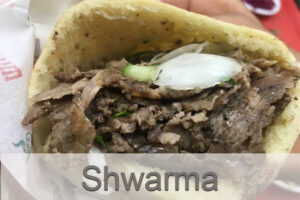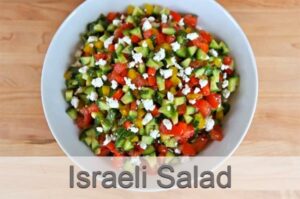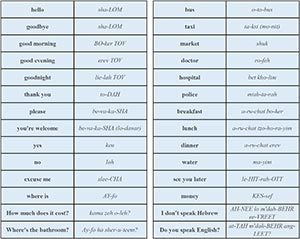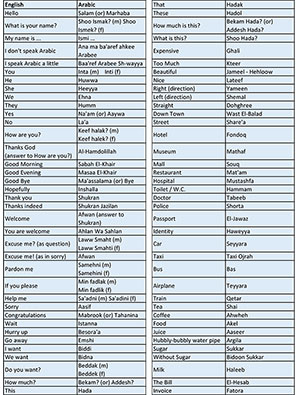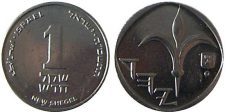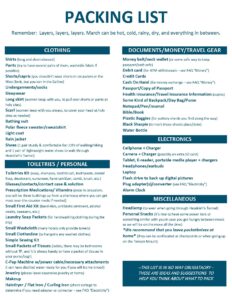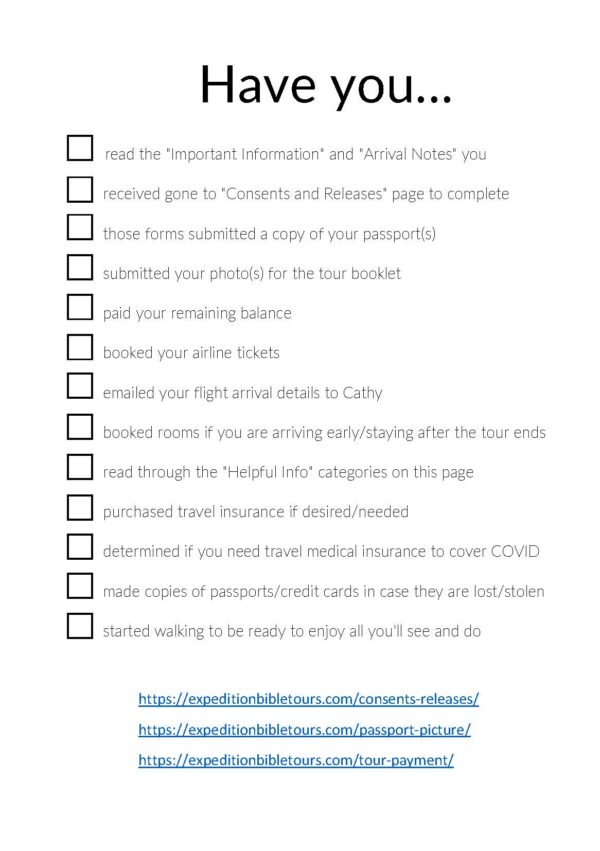What You Need To Know!
Till Your Israel Trip Begins!
Till Your Israel Trip Begins!
Helpful Info
Country Codes: to call Israel: +972 / to call the US: +1
SIM cards: If you have an unlocked, GSM smart phone, then an Israeli SIM card will work with your phone. (If you use a SIM card in your mobile phone, the phone is a GSM device; otherwise, if your phone does not require the use of a SIM card, the phone is a CDMA device and you won't be able to use an Israeli service.)
Purchase on arrival: Local SIM cards can be purchased at the airport. If having a local data plan right away is critical for you, purchasing at the airport is your best option. You will find counters selling them once you exit into the arrivals hall.
Purchase in advance: If you have enough lead time, you can purchase a SIM card and have it mailed to your home through a company called SIMtoISRAEL. While we do not have personal experience with them, they seem to be very reliable and have good customer service. Here is a link to their site: https://www.simtoisrael.com
Their FAQ page is very helpful in understanding how it works: https://www.simtoisrael.com/faq
14 Day Plan ($35) 21 Day Plan ($49)
VOLTAGE: Israel operates on a 230V supply voltage and 50Hz. These days many laptops, cellphones, and other personal electronics are safe with 110-240V. However...check all your electronics...to determine what voltage they can use.
PLUG TYPES: Israel uses two main types of plugs: C and H. Plug type C is the plug that has two round pins, and plug type H has three pins in a triangular shape.
TYPE C
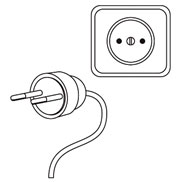
TYPE H
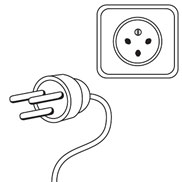
ADAPTERS: If your device shows "110V-240V" all you need is an adapter so that your charger fits the shape of the wall plug. (graphic above) Here are links to adapters on Amazon.com, although you may find better options by searching.
Amazon: Type C Adapter
Amazon: Type H Adapter
CONVERTERS: If your electronics only say "110V", you will need to use a converter to avoid ruining them. Heating devices (e.g. curling irons, flat irons, blow dryers) usually require a stronger converter of at least 1600 watts, although 2000watts is preferable.
Many Israeli hotels have hair dryers and 110 electric outlets for shavers in the restrooms, which may be a better option than trying to get a North American hair dryer to work properly. It is possible to find curling irons/flat irons that are dual-voltage (at Sally's Beauty Supply, Amazon.com, etc.), which is very helpful when traveling internationally.
If you require a converter, here is a link to one on Amazon.com, although you may find better options by searching.
TYPES OF FOOD: Israel has great food. Most people are probably familiar with falafel (ground, fried chickpeas) served with salad in pita bread. Meat eaters will love shwarma, lamb/chicken/turkey sliced off a spit and served in pita (similar to gyros). Both are cheap, filling meals. You will also find other Mediterranean specialties like shishlik (shish kebab) and baklava (sweetmeat made of dough, honey, and nuts). A favorite breakfast for Israelis is shakshouka (eggs cooked in a stewed tomato sauce with plenty of garlic and spices). You'll have to be brave and try it! In addition, you'll have no trouble finding healthy, tasty salads like Israeli Salad and Tabbouleh. And of course, hummus and pita...which is offered at almost every meal.
WATER: The water in Israel is safe to drink; nevertheless, it is different from what you are used to, and people with sensitive stomachs may want to stick to bottled water. Israelis don't usually put ice in their drinks, so if you want some, ask for kerakh.
RESTAURANTS: In larger cities, you will find some American restaurants like McDonald's, Burger King, Pizza Hut, and Dunkin' Donuts. You will also find local restaurants of many varieties: Mediterranean, Mixed Grill, Thai, Chinese, etc.
SNACKS: During the trip, if you want to purchase snacks, bottled water, candy, sodas, etc. you can find those items at convenience stores, of which there are many.
HEBREW PHRASES: Learning just a few common Hebrew phrases will help you get by in Israel. If nothing else, you can learn "Thank you!" and "Where's the bathroom?"
ARABIC PHRASES: Any attempt you make to speak Arabic with a local Arab will be met with warm appreciation. This chart can help with that.
URGENT CARE: Israel has great urgent care clinics called, Terem Clinics, in all major cities. They can take x-rays, give stitches, run blood tests, cast simple breaks, diagnose illnesses, etc. As a foreigner, there is an upfront fee of about $100 plus the costs of any medications/tests/supplies used. They will give you full documentation of your visit complete with Dr.'s notes in English so that you can submit it to your insurance for reimbursement (if that is an option for you).
HOSPITAL: If you have a more serious medical situation, Israel has world-renown hospital medical care. Make sure that you have copies of any pertinent medical insurance documents to present should you need to be admitted to the hospital.
TRAVEL MEDICAL INSURANCE: Currently, Israel requires you to have medical insurance that specifically covers COVID. If your insurance does not make that distinction, you will need to purchase travel medical insurance. Additionally, if your regular coverage does not include overseas travel, we strongly encourage you to purchase coverage for accidents or medical emergencies that might arise while you are on the tour. Short-term travel policies are fairly affordable.
Below are links to various options for travel medical insurance (we have no affiliation with any of these companies, and you may find better options by searching):
ATMs: There are numerous ATMs in Jerusalem and in all large cities in Israel. They are not as prevalent in smaller cities or in the West Bank areas. Take note that many ATMs do not work on Shabbat (Friday night/Saturday).
GETTING CASH ON ARRIVAL: You should plan to get some money at the airport, either exchange cash or withdraw from an ATM. There will not be much time or ATM availability for the first few days of our trip, and you will need to have cash on hand to pay for your transportation from the airport and your lunches once we begin touring. Some of our lunch locations might take credit cards, but you should always plan on having cash available in case they don't. (Lunches tend to run around 50-70NIS/person/day). We recommend getting at least $250-$300/person worth of shekels (apx. 850-1000 shekels/person) to begin with.
Once we get to Jerusalem, we have a source in the Old City that will give you a good exchange rate. You can exchange cash or withdraw money using your credit card; however, you can not cash a personal check.
CURRENCY / DENOMINATIONS: Israel uses the shekel as its currency. You will see it identified in several ways:
NIS - New Israeli Shekel
ILS - Israeli Shekel
₪ - symbol like $, €, £
Click the pictures to see what Israeli coins and bills looks like.
EXCHANGE RATE: Each shekel is worth about 25-30 American cents. You can use this app to calculate how many shekels equal $1, $5, $10, etc. For those not from the US, you can switch to your currency.
BEST PRACTICES WHILE ABROAD: The following list is adapted from this article -- *https://www.fodors.com/news/exchanging-your-3870
- ATMs are the best choice for day-to-day funds.
- "No-fee" bureau de change are usually the most expensive places to change money.
- If you need a lot of cash, ask your bank to raise your daily withdrawal limit.
- Never take a cash advance on your credit card except in a dire emergency.
- Use credit cards for large purchases.
- When paying by credit card, if given the option, choose to pay in local currency, not USD.
- For added security, don't make purchases with your debit card abroad. Use a credit card instead.
PACKING LIST: This is a list of suggestions and ideas, not a mandatory list.
Pay by PayPal/Credit Card
Make one payment or multiple payments by credit card
EMERGENCY NUMBER: 101 -- In an emergency, dial 101.
SITUATIONAL AWARENESS: Although is seems impossible from watching the news, Israel is a relatively safe place to visit. While in Israel, behave in the way you would in any large, urban city. Be careful where you go at night, and travel in groups when possible. Our group will be together most of the time you are in Israel, but when you are out-and-about, exercise "situational awareness" and be aware of what is happening around you.
PICK-POCKETS: Israel doesn't have a reputation for rampant pick-pockets; however, you should always take the greatest of care with your passport/cash/credit cards. You can keep them in a money/passport bag around your waist or neck, or in a deep, interior section of a purse or backpack.
THEFT: Sadly, there is quite a bit of theft in Israel, so don't ever leave personal possessions laying around unattended. It will be safe to leave things in the bus with our driver, but other than that, don't leave anything in vehicles.
ON DUTY SOLDIERS: One of the first things you'll notice when you arrive in Israel is the number of people carrying guns. It can be disconcerting. Soldiers carry them on the streets, in cars and on buses. Soldiers who are in active military service are required to keep their weapons with them at all times, and since so many Israelis are on active duty (all Israeli citizens must serve in the military after high school), it is not uncommon to stand next to someone with a machine gun hanging around their neck. It's a fact of life in Israel and nothing to fear.
Shabbat: Shabbat (the Sabbath) begins at sundown on Friday evening and lasts till sundown Saturday evening. It is the Jewish holy day, and for the most part things shut down for Shabbat.
- Many businesses close early on Friday afternoons so that their employees can get home before Shabbat begins.
- Don't be alarmed if you hear a siren going off at sundown on Friday. The "Shabbat Siren" sounds all around to let everyone know that Shabbat has officially begun.
- Public transportation does not run on Friday night or until after sundown on Saturday when Shabbat is over. However, there are taxis available.
- Some hotels have a designated "Shabbat Elevator" which will stop on each floor automatically so that no one is required to do the work of pushing a button.
- Shabbat is a day when people enjoy resting, getting outside, going for walks, and visiting with friends and family.
"Hello!": Israel is a place of many cultures and languages all coming together. Predominantly you will hear Hebrew and Arabic, although there is large Russian-speaking population as well. English is pretty commonly spoken by many Israelis, especially in Jerusalem.
- If you are unfamiliar with what Hebrew and Arabic sound like, it can be difficult to distinguish which language is being spoken. If you are unsure whether you should say "Shalom" or "Marhaba"...it's always okay just to say "Hello!" 🙂
Bathroom Etiquette: Many places in the Middle East, having been inhabited for century-upon-century, experience the phenomenon of the modern being built right into the ancient. This is particularly true in regards to cities' infrastructures. This comes to bear upon bathroom etiquette in that sewage and plumbing systems that are not fully modern can easily get clogged up with toilet paper. You will notice posted signs asking people to dispose of their TP in the garbage can rather than flushing it. While this may be very different from what we are used to, it is an important habit to practice to avoid a bathroom disaster!
WHAT TIME IS IT BACK AT HOME?
If you are wondering if it is a good time to call or chat with your family or friends, click on this button to see what time it is for them. You can change the time zone as needed.
DAYLIGHT SAVINGS SWITCH:
(not all of our tours will be in Israel when the time change occurs)
- In Israel, Daylight Saving Time starts at 2:00 a.m. on the Friday before the last Sunday of March and ends at 2:00 a.m.
on the last Sunday of October. - Israel does not not necessarily switch to Daylight Savings Time on the same date as your home country.
FILES: If you can't lay your hand on the files you received by email -- Tour Information, Arrival Notes, Tour Calendar, Contact Information -- it's not a problem! You can download them again.
PUBLIC TRANSPORTATION:
The main forms of public transportation are buses and the national train service, both offering a convenient, reasonably priced means of travel to nearly every destination in the country.
- Train Information Services: www.rail.co.il / Telephone: 08-6831222 or *5770
- Buses Information Services: www.egged.co.il/Homepage.aspx / Telephone: 1-900-72-1111
Tickets can be purchased at the ticket booths in the central bus station in each city or town, or from the driver. Most of the bus lines do not run on Shabbat or on Jewish holidays. Service ends on Friday afternoon and resumes Saturday evening.
TAXIS:
Taxis are very common and popular forms of transport in Israel. Taxis are widely available and are generally safe, modern cars with helpful drivers. Within cities, drivers must use the meter unless they agree to a fixed fare with the passenger. Always insist on the meter. Travel between cities have fixed fares.
There are surcharges for calling a taxi (apx. 5 NIS), for luggage (apx. 4.6 NIS/piece) and for hailing a taxi at Ben Gurion airport (apx. 5 NIS). Night rates have a 25% surcharge, and there is a starting fare of NIS 11 in cities.
Taxi Apps in Israel: One of the best and most widely used taxi apps in Israel is called Gett. This app can be downloaded in the app store (Gett - Ground Transportation) both inside and outside of Israel, and works in English, offering quick and efficient taxi service while in Israel.
Seasonal Conditions: Israel enjoys long, warm, dry summers (April-October) and generally mild winters (November-March), with somewhat drier, cooler weather in hilly regions, such as Jerusalem and Safed. Rainfall is relatively heavy in the north and center of the country with much less in the northern Negev and almost negligible amounts in the southern areas. Regional conditions vary considerably, with humid summers and mild winters on the coast; dry summers and moderately cold winters in the hill regions; hot dry summers and pleasant winters in the Jordan Valley and year-round semi-desert conditions in the Negev.
What to expect in March: Typically the cold temps and heavy rains of winter are beginning to subside. However, it is possible to experience rain showers, so having light rain gear is a good idea. Morning and nights are cold/cool with the temperature rising to pleasantly warm during the day. The best strategy is to dress in layers that can be taken on and off as needed.
Resources
Enjoy these digital resources to help you prepare for our trip.
Jericho Unearthed
The walls of Jericho came tumbling down, but does archaeology agree with the Biblical account of Joshua and Jericho? This video explains why the answer to that question is a resounding, "Yes!"

The Elah Vally Panorama
The valley where David fought Goliath
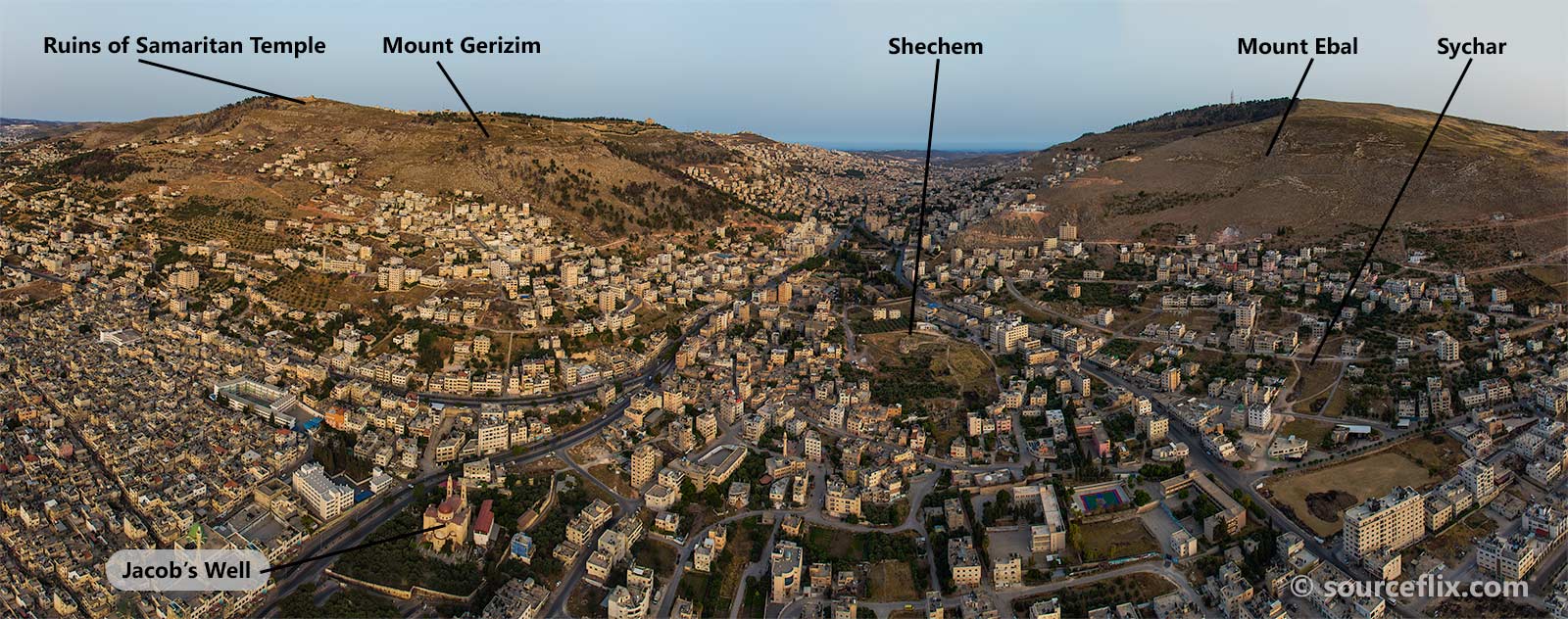
The City of Shechem Panorama
The place where Jesus talked to the Samaritan woman at Jacob's Well.


